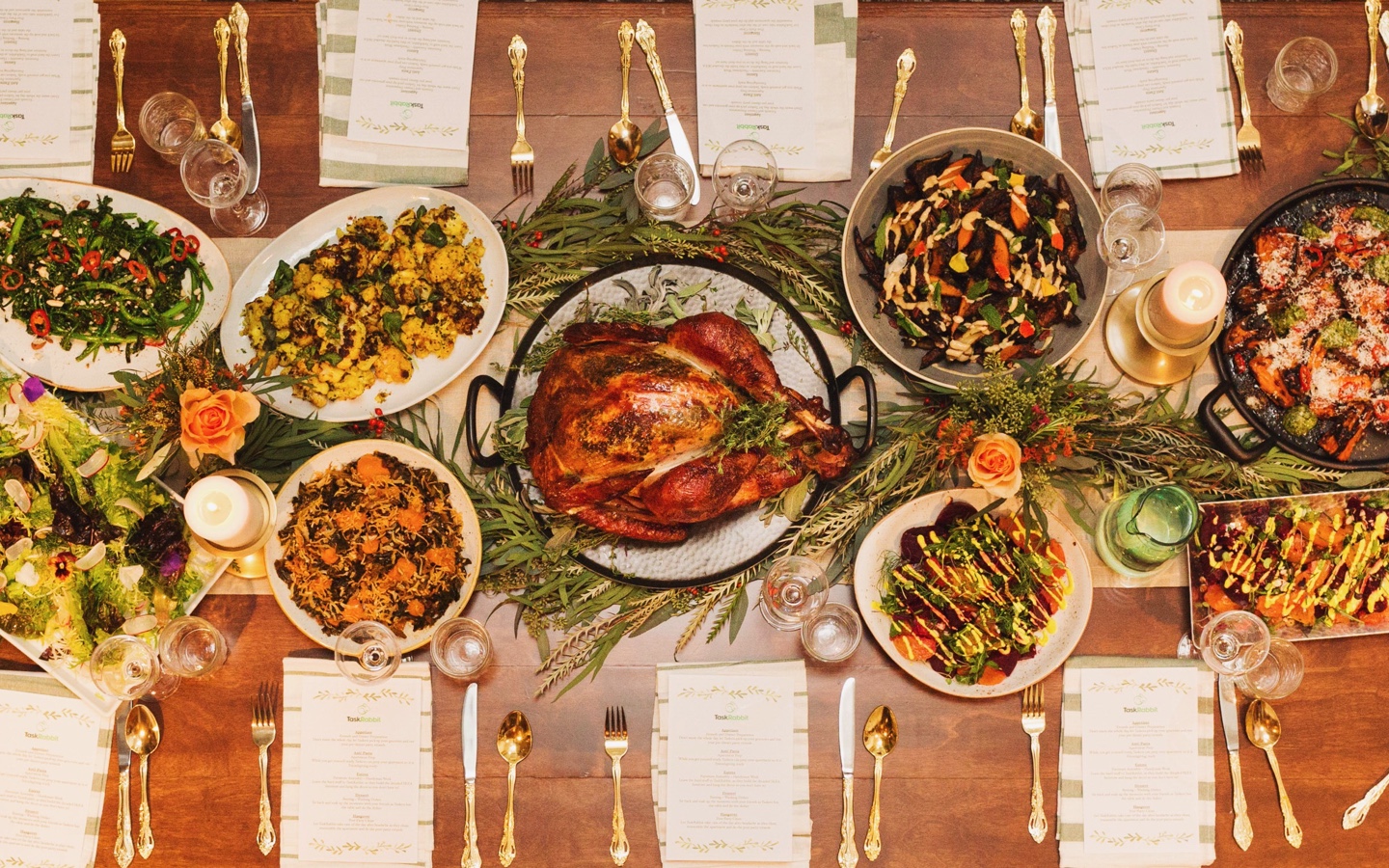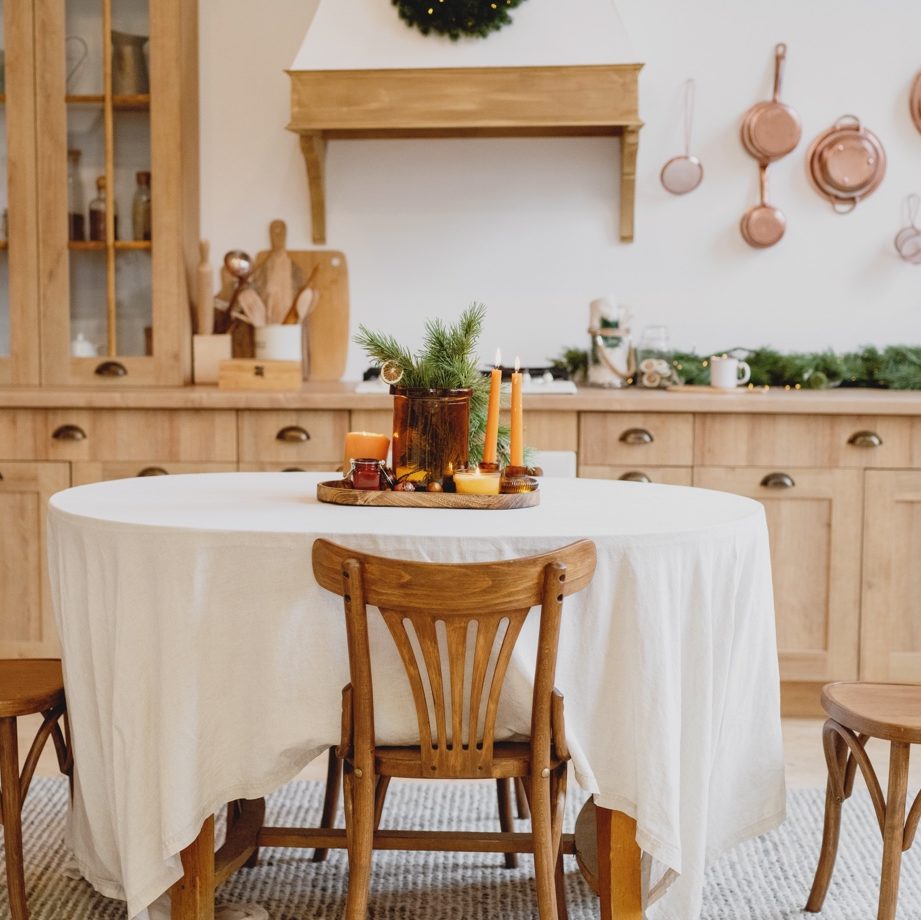By purchasing your Thanksgiving turkey from a regenerative farm, you’ll support small farmers while making a sustainable choice that’s better for the environment, animals, and your family.
With Thanksgiving just a few weeks away, it’s time to start planning the menu. Of course, it wouldn’t be a holiday without the spirited annual debates over certain classic dishes: Are you on team canned cranberry jelly or team fresh sauce? Do you prefer stuffing or is dressing a must? Whatever your stance, there’s one thing most can agree upon: This American holiday meal isn’t complete without a turkey.
But before you get to the brining and roasting, first comes the task of finding and purchasing a bird. Along with apple cider and pumpkin spice everything, turkeys start popping up at major supermarkets this time of year, often sourced from the same handful of big-name poultry providers. Brands like Butterball and Cargill may conjure up nostalgic feelings of Thanksgivings past, but their farming practices — much like those of the chicken industry — have been called into question by animal welfare organizations.
With more consumers being mindful of where their food comes from, finding a sustainable Thanksgiving turkey that’s raised in a humane and eco-friendly environment is becoming a top priority. Smaller turkey farmers are taking note, implementing regenerative practices that seek to raise healthy, well cared for animals without depleting the land of nutrients.

Read more: Why Local Farmers Need Your Support Now More Than Ever
What Exactly Does Regenerative Mean?
It’s all about maintaining healthy soil. Regenerative International, a nonprofit that promotes a global shift to regenerative farming, describes it as “farming and grazing practices that, among other benefits, reverse climate change by rebuilding soil organic matter and restoring degraded soil biodiversity.” Studies have shown that widespread soil degradation — which occurs naturally due to erosion or because of human activity — can have a devastating effect on our resources. Poor soil health makes it difficult to grow food and sustain animals, including Thanksgiving’s essential centerpiece.
To combat this, a number of turkey farms have implemented regenerative practices, including adaptive grazing. As Dr. Allen Williams, Chief Ranching Officer at Joyce Farms, explains here, adaptive grazing mimics nature and, more specifically, the fertile land created by ruminants such as bison. To recreate this, farms have livestock graze in a small section of a pasture and move them to a new area once they’ve finished foraging. The grazed area is then allowed to regrow naturally without fertilizers and chemicals.
Read more: Why Regenerative Agriculture Produces Healthier Soil and Farms
Tips for Shopping Sustainably
So you’re on the quest for a sustainable Thanksgiving turkey — what next?
Do your research. Many farms are providing more transparency about how they raise their turkeys, sharing details about their regenerative agriculture programs and animal welfare practices on their websites.
Learn the lingo. Organic. All-natural. Pasture-raised. It’s easy to get overwhelmed by the terms you see on labels. Before you head to the market or hit the buy button online, brush up on what these popular green buzzwords mean and shop according to the traits that are important to you. There is a Regenerative Organic Certified label, but it’s still relatively new and may be hard to find. Three key things to look for: Make sure the turkey is free of antibiotics, fed a vegetarian diet, and pasture-raised.
Shop local. Buying from a nearby farm means a smaller carbon footprint for your Thanksgiving bird — these locations are also more likely to boast healthier agricultural practices than large corporate operations. It’ll also give you the opportunity to ask questions and learn more about the turkeys they raise.
Where to Order a Humanely Raised Turkey
If shopping local isn’t an option, it’s possible to get a regenerative turkey shipped. Just make sure to place an order before the farm’s shipping deadline.
The family-owned farm, which has a small network of partners in the Carolinas and Georgia, specializes in heritage poultry raised without antibiotics, hormones, animal byproducts, or artificial ingredients.
Located in Bluffton, Georgia, White Oak Pastures shifted to its current regenerative farming model in 1995. It now houses 10 species of animals — including turkeys — and has made a zero-waste commitment.
Now run by its fifth-generation owners, Jiandl’s antibiotic-free birds are best known for being the White House’s turkey of choice.
Kentucky’s Elmwood Stock Farm is another practitioner of regenerative agriculture and offers heritage and broad-breasted pasture-raised turkeys.
Read more: How the Farm Bill Hurts Small Farms
Did you buy your turkey from a regenerative farm this year? Let us know by tagging @avocadogreenbrands on Instagram or Facebook.

Shop Pillows
The Essential Organic Pillow Collection
Gentle, breathable, non-toxic support.





